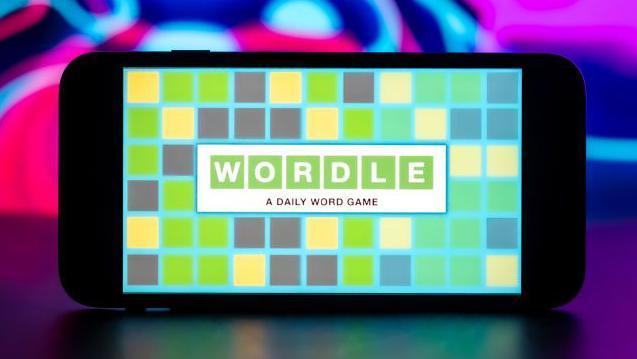New York Times legal threat to Shetland Wordle

- Published
Creators of a Shetland dialect version of the online word game Wordle have been told it has to be taken down.
Language group I Hear Dee launched Wirdle about two years ago.
It has resulted in more than 20,000 unique users of the game from 113 different countries.
But it is being pulled after a threat of legal action from the New York Times, which owns the copyright to Wordle.
I Hear Dee said it did not believe that free and non-profit versions of Wordle in languages other than English, especially endangered ones, infringed on the New York Times game.
But the group said it did not have the means to challenge the publisher.
Linguistics expert Prof Viveka Velupillai, who is part of I Hear Dee, said the issue affected hundreds of minority language versions of the game.
She said: "Frankly, every time anyone used an offshoot of Wordle there was an acknowledgement about the original source.
"All of those users were an enhancement to the New York Times Wordle, because every time anyone used that they would be aware of the fact that the inspiration was the original Wordle.
"That made the original Wordle look like a really inclusive and inspirational game. That impression of course now has been reversed. "
'Knock-off versions'
The New York Times said it had taken legal action against a software developer and others who had shared a code that led to hundreds of websites popping up with "knock-off" versions of its game.
It said the action was taken to defend the New York Times intellectual property rights in Wordle, adding that the developer had been given opportunities to alter their code.
A New York Times spokesperson said: "The Times has no issue with individuals creating similar word games that do not infringe The Times’ Wordle trademarks or copyrighted gameplay."